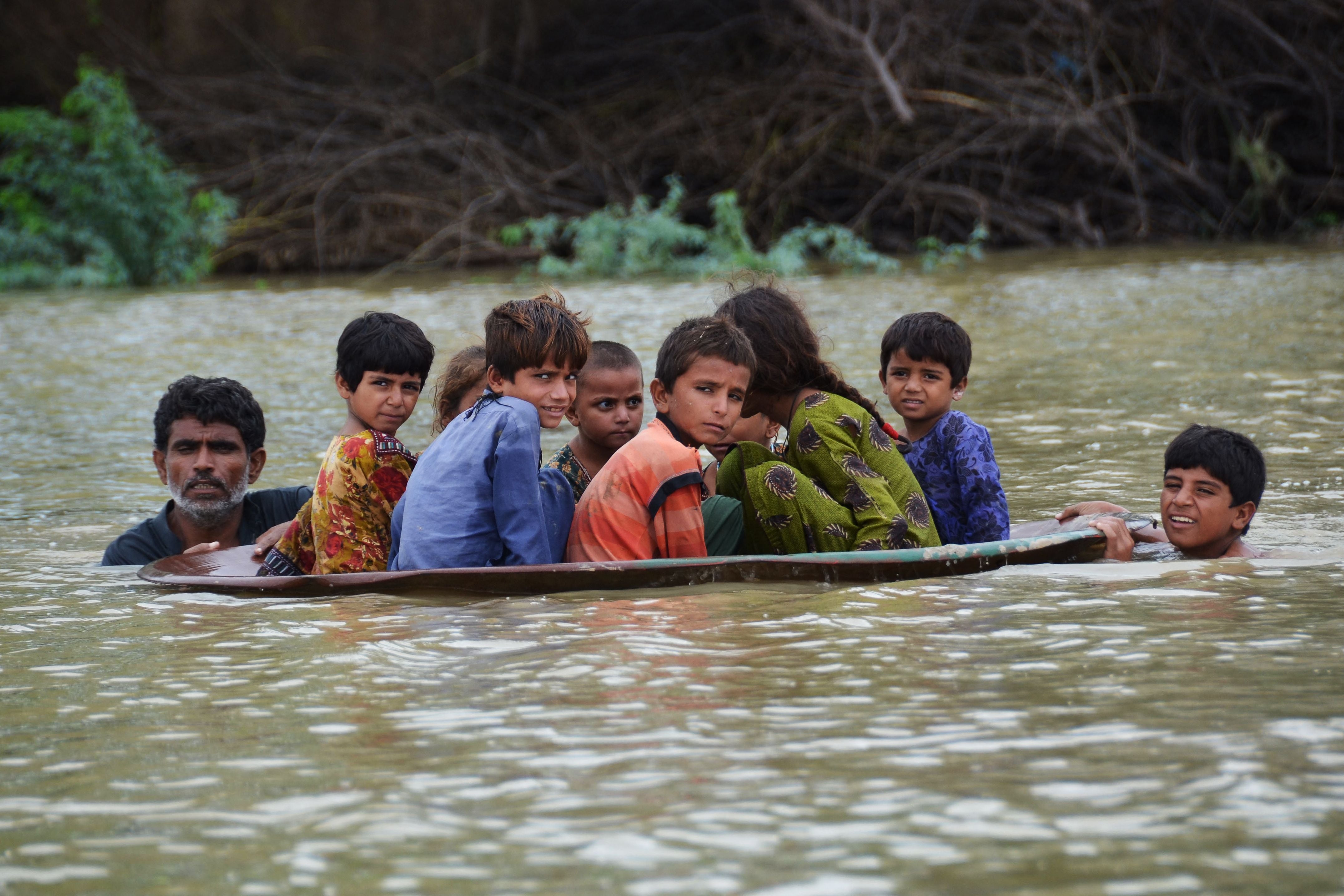Emissions are rising, climate disasters are worsening: So are Cop summits working?
There remains little time to chart a better course for the future, writes Nathan Cooper


Greenwashing, fragmented real-world action, and the continued failure to reign-in climate-altering emissions are increasingly defining international summits designed to address the climate crisis.
The UN’s ongoing Global Stocktake process is an assessment of international progress on tackling the climate emergency. With leaders from the UN, the hosts of this year’s climate summit, and governments across the world meeting in Bonn, Germany yesterday, there remains little time to chart a better course for the future.
While recognising the vital role of the 2015 Paris Agreement in securing international commitments to stop runaway global heating, the latest UN report states that “collective progress on mitigation remains inadequate”, and we will not hit our targets.
Emissions are still rising. Climate disasters are worsening.
Last summer, a third of Pakistan was under water, and six months on, more than 20 million people need humanitarian assistance from the devastation of flooding. As Europe reels from record-breaking temperatures last summer, this week parts of Spain are forecast to hit 40C, heralding 2023’s first heatwave one month earlier than in 2022.
The first Global Stocktake Process will be concluded at the COP28 climate talks in Dubai in December. World leaders will have to take a long, hard look at the state of our planet and work out how to save it.
The way world leaders respond to the Global Stocktake Process will determine whether we can shift the global emissions curve ahead of 2030. The final Intergovernmental Panel on Climate Change (IPCC) report released last month summarised the last five years of all the scientific data on global temperature rises, fossil fuel emissions and the impact of the climate crisis. It showed that to keep within the 1.5C limit, emissions need to be reduced by at least 43 per cent by 2030 compared to 2019 levels.
This is the decisive decade to make that happen. This next summary is not expected until at least 2027 when it will be too late to shift the emissions curve ahead of 2030.
So at COP28 we need to see radical collaboration between governments, businesses, civil society and communities to transform our energy, food, transport and manufacturing systems. This can be achieved through clear, courageous and concerted policies to further unlock the transformative power of financial markets, industry and innovators.
My experience over the past two COP summits in Glasgow and Egypt respectively, is that there is an alarming disconnect between the formal negotiations of governments and policymakers, versus the actions of businesses, experts, communities and youth organisations driving climate solutions on the ground.
The groups and individuals that come to COP with real-world solutions are truly inspiring. This is what gives me hope that human ingenuity can overcome the biggest existential crisis we have ever faced. However, with more than 70,000 participants planning to descend on Dubai in December for the next round of climate talks, we must avoid COP28 becoming a cacophony of hollow pledges without real action.
Instead, we need to see lean and determined coalitions of the willing coming forward with solutions to radically disrupt the global emissions curve. These coalitions should then be held accountable at COPs to demonstrate their progress by showing tangible and material outcomes of their work rather than PR or greenwashing exercises.
There are reasons to be hopeful.
We are seeing unprecedented examples of progress. In Britain, a concerted effort between government, industry and innovators has made the UK’s offshore wind capacity the largest in the world. Global emissions from power generation are reported to have peaked in 2022, due to growth in wind and solar energy.
At the United Nations biodiversity summit in Montreal in December 2022, 190 countries agreed to halt and reverse biodiversity loss by 2030, with a view to protecting a third of the planet by the same date. Across the thousands of Global Stocktake submissions from governments, cities and regions, businesses and communities from across the world, we see countless examples of solutions on the ground being developed.
Over the past 50 years, human impacts on the planet have radically accelerated. World population has more than doubled from around three billion people in the 1960s, to over eight billion today. The world economy has exploded to almost 70 times that of the 1960s. Global CO2 emissions have quadrupled between 1960 and 2020.
The future of humanity for the next hundreds, if not thousands of years, will be defined by the decisions we make now.
The way humanity has solved problems in the past is no longer fit for purpose: we need radical collaboration between all levels of society - governments, the private sector, communities and individuals. As the world takes stock of our progress on tackling climate change at COP28, this presents a unique opportunity to rethink, reinforce and accelerate our strategies to protect the future of people and planet.
Nathan Cooper leads the World Economic Forum’s strategic climate partnerships, was a COP26 policy advisor for the UN Climate Change Conference, and sits on the expert advisory panel of the Prince of Wales’s Earthshot prize






Join our commenting forum
Join thought-provoking conversations, follow other Independent readers and see their replies
Comments